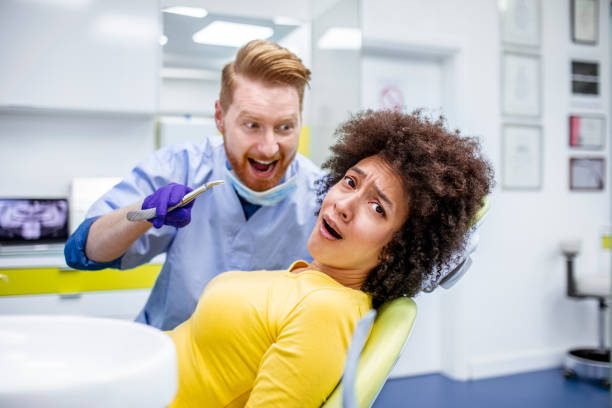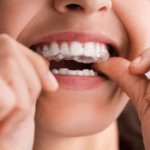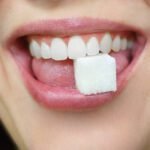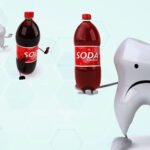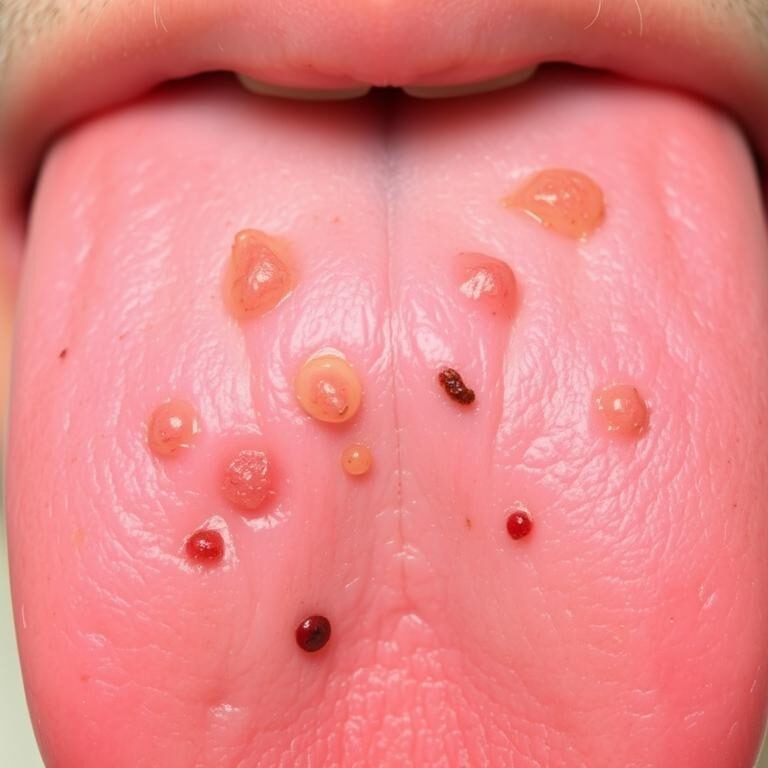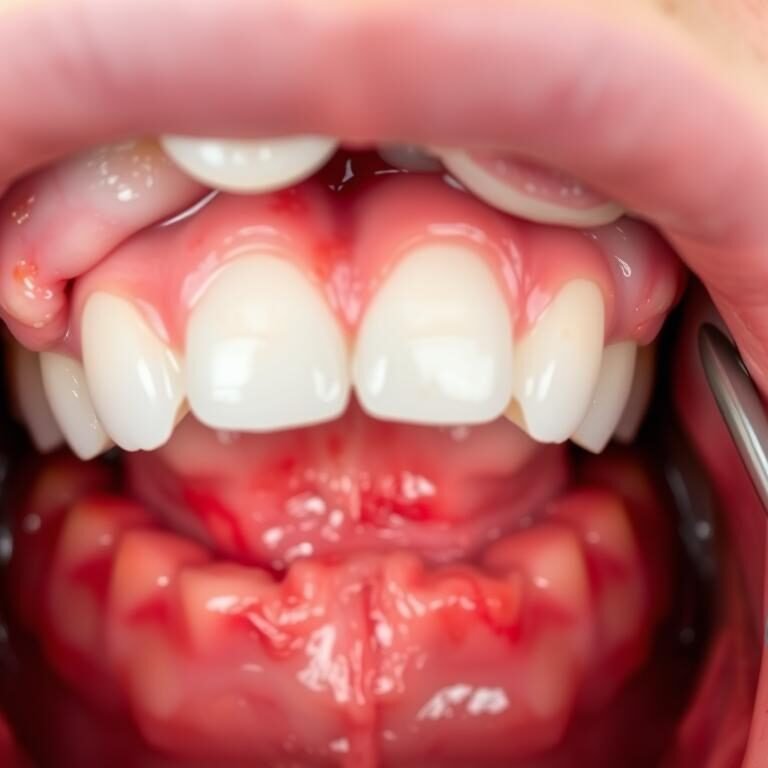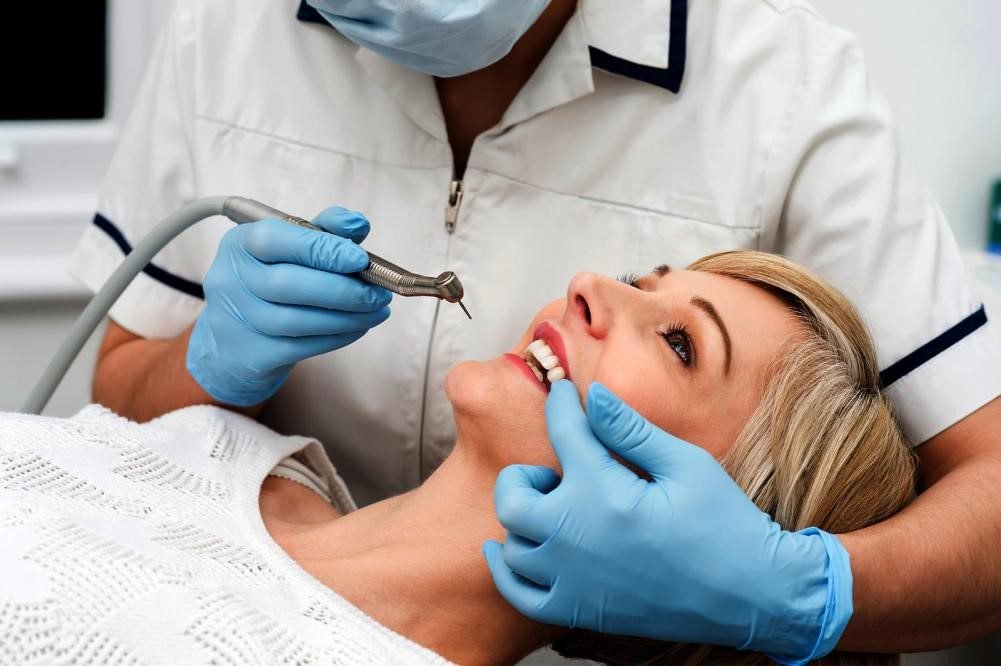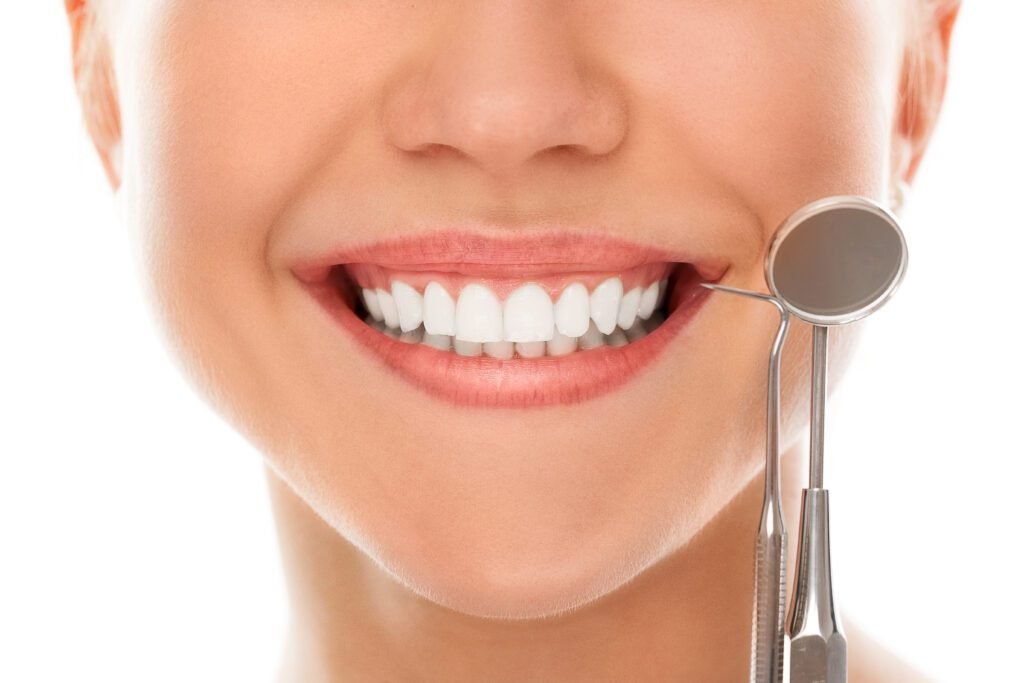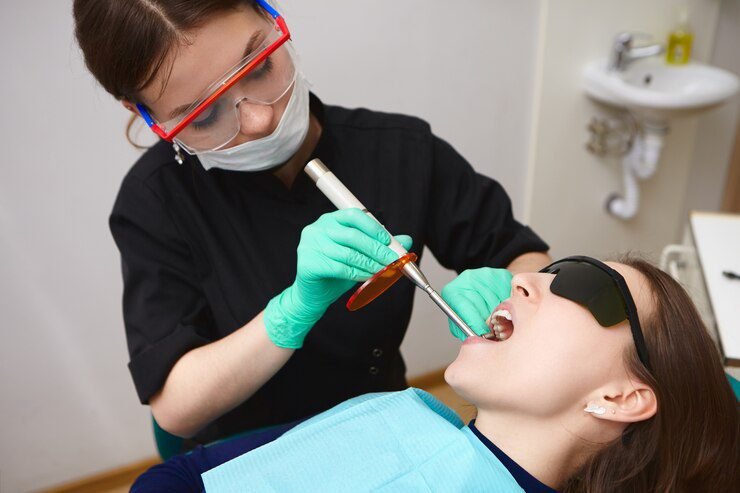Table of Contents
DIY Dentistry: A Risky Venture for Your Oral Health
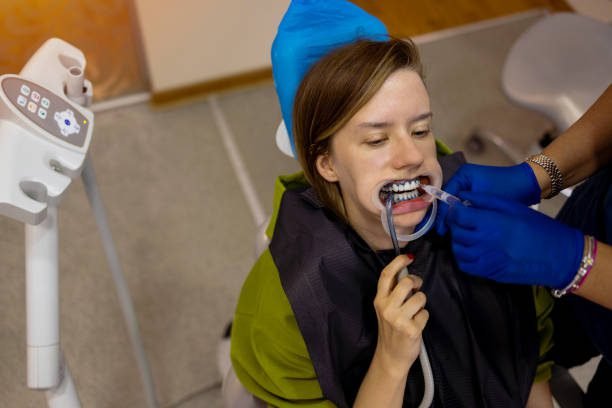
Many individuals may be tempted to embark on do-it-yourself dentistry as a means of saving time and money. However, it is important to recognize that this venture carries significant risks for your oral health. DIY dentistry involves performing dental procedures at home without the guidance and expertise of a qualified dentist.
One of the most pressing concerns with DIY dentistry is the lack of proper training and education. Dentists spend years studying and training to become skilled professionals in their field. They have a deep understanding of oral anatomy, dental techniques, and safety protocols. Attempting to perform dental procedures without this level of knowledge can result in serious harm or complications. Furthermore, non-sterile instruments used in DIY dentistry can introduce bacteria into the oral cavity, leading to infections and other health issues.
The Attraction of Do-It-Yourself Dentistry
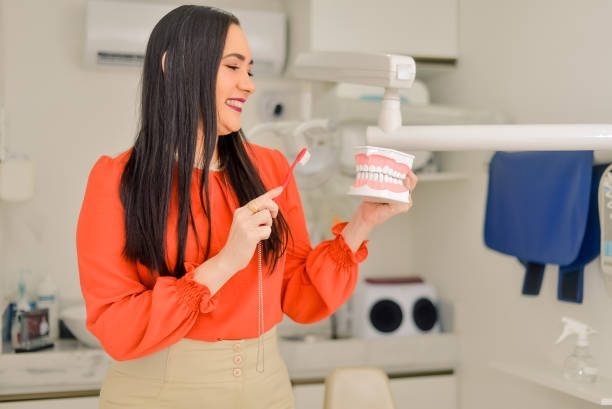
Do-It-Yourself (DIY) dentistry may seem appealing to some individuals, especially those who are looking to cut costs or those who prefer to take matters into their own hands. With the abundance of online tutorials and videos, it can be tempting to believe that performing dental procedures at home is a viable option. However, it is crucial to understand the potential consequences of engaging in DIY dentistry without proper training and qualifications.
One of the main attractions of DIY dentistry is the perceived cost savings. Dental treatments can be expensive, and some individuals may believe that they can achieve similar results at a fraction of the cost by attempting procedures themselves. While it is true that professional dental treatments can be costly, it is important to consider the long-term implications of opting for DIY dentistry. Without the necessary skills and expertise, individuals run the risk of causing irreversible damage to their teeth and gums, leading to more complex and expensive treatments down the line.
The Potential Consequences of Unqualified Dental Procedures
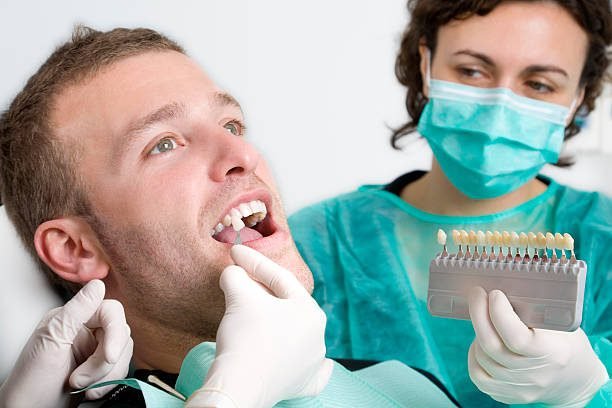
In recent years, the trend of DIY dentistry has gained popularity among individuals seeking to save money and take matters into their own hands. However, the potential consequences of unqualified dental procedures should not be underestimated. When it comes to matters of oral health, the expertise and training of a qualified dentist are crucial for ensuring safe and effective treatment.
One of the main risks of unqualified dental procedures is the possibility of causing further damage to the teeth and gums. Without the necessary knowledge and experience, individuals attempting DIY dentistry may inadvertently worsen existing dental issues or create new ones. For example, attempting to fill a cavity without proper training can lead to infections, abscesses, or even nerve damage. It is essential to understand that dentistry is a complex field requiring extensive education and hands-on experience.
The Importance of Proper Training and Education in Dentistry
Proper training and education are paramount in the field of dentistry. Dental professionals undergo extensive schooling and practical training to acquire the necessary knowledge and skills to provide high-quality care to their patients. This rigorous training equips dentists with a deep understanding of dental anatomy, oral health, and the various treatment options available.
An essential aspect of dentistry is the ability to accurately diagnose and treat dental issues. Through their training, dentists learn how to effectively examine patients, interpret diagnostic tests, and develop comprehensive treatment plans. This expertise is crucial in ensuring the appropriate and timely management of dental problems, preventing further complications and promoting long-term oral health.
Moreover, the field of dentistry is constantly evolving, with new research, technologies, and techniques being introduced regularly. Dentists with proper training and education are well-versed in these advancements and can incorporate them into their practice to deliver the best possible care to their patients. By staying informed and up to date, dental professionals can provide innovative and evidence-based treatments, ensuring optimal outcomes for their patients’ oral health.
In conclusion, the importance of proper training and education in dentistry cannot be overstated. The expertise and knowledge acquired during this process enable dental professionals to provide accurate diagnoses, develop effective treatment plans, and stay abreast of the latest advancements in the field. Seeking dental care from trained and educated professionals ensures that patients receive the highest quality of treatment and enjoy optimal oral health outcomes.
Here’s a table summarizing the importance of proper training and education in dentistry:
| Importance of Proper Training and Education in Dentistry | Description | Credible Source |
|---|---|---|
| Comprehensive Knowledge and Skills | Proper training and education provide dentists with comprehensive knowledge and skills in various aspects of dentistry, including oral anatomy, diagnosis, treatment planning, and dental procedures. A strong educational foundation prepares dentists to deliver high-quality care and address diverse patient needs. | American Dental Association (ADA): Link |
| Patient Safety and Well-being | Rigorous training and education emphasize patient safety and well-being as paramount priorities in dentistry. Dentists learn proper infection control protocols, ethical standards, and risk management strategies to ensure the safety and comfort of their patients during dental procedures. | Centers for Disease Control and Prevention (CDC): Link |
| Continual Professional Development | Lifelong learning is essential in dentistry to stay updated on advancements in dental technologies, treatment modalities, and evidence-based practices. Continuing education programs allow dentists to enhance their skills, expand their knowledge, and provide the highest standard of care to their patients. | American Dental Education Association (ADEA): Link |
| Adherence to Ethical and Legal Standards | Dental education emphasizes adherence to ethical and legal standards governing professional conduct, patient confidentiality, informed consent, and professional relationships. Dentists receive training in ethical decision-making and communication skills to maintain trust and integrity in patient care. | American Association of Dental Boards (AADB): Link |
| Professional Collaboration and Networking | Proper training fosters collaboration and networking among dental professionals, promoting interdisciplinary teamwork and knowledge-sharing within the dental community. Dentists collaborate with specialists, allied health professionals, and researchers to deliver comprehensive care and improve patient outcomes. | International Association for Dental Research (IADR): Link |
The Risks of Using Non-Sterile Instruments in DIY Dentistry
Using non-sterile instruments in DIY dentistry can pose significant risks to your oral health. When performing dental procedures at home, it is crucial to prioritize cleanliness and sterilization to prevent infections and other complications.
In a professional dental setting, strict protocols are followed to ensure instruments are properly sterilized before use. This helps eliminate harmful bacteria and viruses that can easily be transmitted during dental procedures. However, when attempting DIY dentistry, many individuals may not have access to the necessary equipment or knowledge to effectively sterilize instruments.
Using non-sterile instruments can introduce bacteria into your mouth, increasing the risk of infections such as gum disease or abscesses. These infections can cause pain, swelling, and potentially lead to more severe health issues if left untreated. Additionally, non-sterile instruments can also contribute to the spread of bloodborne diseases such as hepatitis or HIV.
To ensure your oral health is protected, it is essential to seek professional dental care where rigorous sterilization practices are followed. Dentists have the expertise and necessary tools to perform dental procedures safely and minimize the risk of complications. Don’t compromise your oral health by attempting DIY dentistry with non-sterile instruments; prioritize your well-being and seek the care of a qualified dental professional.
The Dangers of DIY Orthodontics: Moving Teeth without Professional Supervision
Orthodontic treatment is a specialized branch of dentistry that focuses on correcting misaligned teeth and jaw discrepancies. This treatment typically involves the use of braces, aligners, and other orthodontic appliances to gradually shift the teeth into proper alignment. However, in recent years, there has been a rise in the trend of do-it-yourself (DIY) orthodontics, where individuals attempt to move their teeth without the supervision of a dental professional.
While the concept of DIY orthodontics may seem appealing, it is important to understand the potential dangers associated with this practice. One of the major risks of DIY orthodontics is the potential for irreversible damage to the teeth, gums, and supporting structures. Without proper knowledge and expertise, individuals may apply excessive force or pressure on their teeth, leading to root resorption, gum recession, and even tooth loss. Additionally, DIY orthodontics can also lead to bite problems, as the teeth may not be positioned correctly, resulting in issues with chewing and speaking. It is crucial to recognize that orthodontic treatment requires careful planning, precise adjustments, and regular monitoring by a trained dental professional to ensure optimal results and long-term oral health.
The Hazards of DIY Teeth Whitening: Harmful Chemicals and Incorrect Techniques
Teeth whitening has become increasingly popular in recent years, with people seeking to achieve a brighter, more radiant smile. However, the rise of DIY teeth whitening methods is a cause for concern. Many individuals are turning to at-home remedies and kits, hoping to save money and time. Unfortunately, these DIY methods can be hazardous to your oral health due to the use of harmful chemicals and incorrect techniques.
One of the major hazards of DIY teeth whitening is the utilization of harmful chemicals. Many over-the-counter whitening kits and home remedies contain hydrogen peroxide or other bleaching agents. While these chemicals are effective in breaking down stains and discoloration, they can also cause serious damage to your teeth and gums if not used correctly. The concentration of these chemicals in DIY products is often not regulated, leading to inconsistent and potentially dangerous results. Without professional guidance, individuals may unknowingly expose their teeth to high concentrations of bleaching agents, leading to tooth sensitivity, gum irritation, and even chemical burns.
In addition to the use of harmful chemicals, incorrect techniques pose another hazard of DIY teeth whitening. Unqualified individuals may not have the necessary knowledge or expertise to correctly apply the whitening products or use specialized equipment. Improper application of bleaching gels or trays can result in uneven whitening, leaving some teeth discolored while others appear overly bright. Furthermore, incorrect techniques can lead to damage to the tooth enamel, which is irreversible and can increase the risk of tooth decay and sensitivity.
It is essential to recognize the risks associated with DIY teeth whitening and prioritize your oral health. Seeking professional dental care ensures that the teeth whitening process is performed safely and with the use of appropriate techniques and materials. Dentists have the necessary expertise to assess the condition of your teeth, determine the most suitable whitening method for you, and provide personalized guidance throughout the process. Remember, your smile is an investment, and entrusting it to qualified professionals is crucial for achieving the desired results without compromising your dental health.
The Threat of DIY Dental Fillings: Temporary Fixes with Long-Term Consequences
Dental fillings play a crucial role in restoring and preserving the integrity of our teeth. However, the rise of DIY dentistry has led to a concerning trend of individuals attempting to perform their own dental fillings at home. While the allure of saving money and avoiding a trip to the dentist may be tempting, the truth is that DIY dental fillings present a significant threat to our oral health.
One of the most concerning aspects of DIY dental fillings is their temporary nature. Unlike professional dental fillings that are designed to last for years, DIY fillings often provide only a short-term fix. This means that the underlying dental issues may not be fully addressed, putting individuals at risk of developing more severe problems down the line. Furthermore, DIY fillings may not provide the same level of protection and durability as those performed by a qualified dentist, increasing the likelihood of premature failure.
Additionally, DIY dental fillings lack the precision and expertise that come with professional dental care. Dentists undergo extensive training and education to ensure they can accurately diagnose and treat dental conditions. Without this knowledge and experience, individuals attempting to DIY dental fillings may inadvertently cause further damage to their teeth or gums. In some cases, improper placement of the filling material can lead to infection, decay, or even tooth loss. It is crucial to understand that dental procedures should always be performed by a qualified dentist to ensure the best possible outcomes for our long-term oral health.
The Pitfalls of DIY Tooth Extractions: Unnecessary Pain and Infection Risks
Tooth extractions are a delicate dental procedure that should always be performed by a qualified professional. Attempting a DIY tooth extraction poses significant risks to your oral health. Not only can it result in unnecessary pain, but it also increases the chances of infection.
One of the major pitfalls of attempting a DIY tooth extraction is the lack of knowledge and experience in assessing the complexity of the procedure. Dentists undergo years of rigorous training to understand the intricacies of the oral cavity and the proper techniques for extracting teeth. By attempting an extraction without this expertise, you run the risk of causing additional damage to surrounding teeth, gums, and nerves, leading to prolonged pain and complications.
Furthermore, the risk of infection is heightened when tooth extractions are performed outside of a sterile dental environment. Dentists follow strict protocols to maintain a clean and controlled surgical setting, minimizing the risk of infection. On the other hand, DIY tooth extractions often involve unsanitary instruments and an inadequate understanding of infection control measures. This increases the chances of introducing harmful bacteria into the extraction site, leading to painful infections that can spread to other areas of the mouth.
In conclusion, DIY tooth extractions are not only ill-advised but also pose serious risks to your oral health. The pain and potential for infection far outweigh any perceived cost-saving benefits. It is crucial to prioritize your oral health and seek the expertise of a qualified dentist when faced with the need for a tooth extraction.
The Fallacy of DIY Dental Crowns: Ill-Fitting Restorations and Bite Alignment Issues
DIY dental crowns may seem like a cost-effective solution for those seeking to repair damaged or missing teeth. However, the reality is that attempting to create dental crowns without professional supervision can lead to a multitude of problems. One significant issue is ill-fitting restorations. Dental crowns need to be precisely designed and crafted to fit seamlessly with the surrounding teeth. Without the proper training and expertise, it is nearly impossible for an individual to achieve the level of precision required to create a well-fitting dental crown.
In addition to ill-fitting restorations, DIY dental crowns can also result in bite alignment issues. The alignment of your teeth plays a crucial role in your overall oral health and functionality. When a dental crown is improperly placed, it can disrupt the natural alignment of your bite. This can lead to a myriad of problems, including difficulty in biting and chewing, increased risk of tooth decay and gum disease, temporomandibular joint (TMJ) disorders, and even facial pain. Only a qualified dentist has the knowledge and skill to ensure that the dental crown is precisely positioned to maintain proper bite alignment.
The Perils of DIY Denture Repairs: Compromised Functionality and Oral Health
DIY denture repairs may seem like a cost-effective solution for those facing issues with their dentures. However, attempting to repair dentures at home can lead to a host of perils that compromise both functionality and oral health. Without the necessary expertise and professional equipment, the results can be disastrous.
One of the primary dangers of DIY denture repairs is the potential for ill-fitting dentures. Dentures that are not properly aligned can cause discomfort and pain, leading to difficulties in eating and speaking. Moreover, poorly repaired dentures can put undue pressure on certain areas of the mouth, resulting in sore spots, gum irritation, and even oral ulcers. By attempting to make repairs without professional guidance, individuals risk further damaging their dentures and exacerbating existing oral health issues.
In addition to compromised functionality, DIY denture repairs can also impact oral health. Ill-fitting dentures can create spaces where food particles and bacteria can accumulate, increasing the risk of gum infection and bad breath. Furthermore, incorrect repairs may lead to damage or fractures within the denture structure, making them more susceptible to harboring harmful bacteria. This can contribute to the development of oral infections and put individuals at a higher risk of developing oral diseases.
It is essential to recognize that denture repairs require the expertise and precision of a qualified dentist. Seeking professional care ensures that dentures are properly assessed, repaired, and adjusted to maintain optimal functionality and oral health. Dentists possess the knowledge, experience, and equipment necessary to identify and address any underlying issues with dentures. By entrusting denture repairs to professionals, individuals can ensure their oral health is preserved and their dentures function as intended.
The Risks of DIY Oral Surgeries: Nerve Damage and Complications
Performing oral surgeries without professional supervision and proper training can have severe consequences, including nerve damage and complications. Nerve damage is a significant risk associated with DIY oral surgeries. The oral cavity is complex, housing numerous nerves that carry vital sensory and motor functions. Attempting surgical procedures without the necessary expertise and knowledge can inadvertently damage these delicate nerves, leading to numbness, tingling, chronic pain, or even paralysis of the affected area.
Complications are another concern when it comes to DIY oral surgeries. Without the guidance of a trained professional, individuals may not fully understand the intricacies of the procedure, leading to mistakes or misjudgments that can result in complications. These complications can range from infections, excessive bleeding, damage to surrounding structures such as blood vessels or adjacent teeth, and even the development of more severe conditions like osteomyelitis or Ludwig’s angina.
It is crucial to recognize the risks involved in DIY oral surgeries and prioritize seeking professional dental care. Dentists undergo years of rigorous education and practical training to ensure they are equipped with the necessary skills and knowledge to perform these procedures safely and effectively. By entrusting your oral health to a qualified dental professional, you can minimize the risks of nerve damage and complications, while maximizing the chances of a successful outcome.
The Unregulated World of DIY Dental Products: Lack of Safety Standards and Quality Control
The world of DIY dental products is a wild and unregulated frontier, with a concerning lack of safety standards and quality control. Many individuals are drawn to the idea of taking matters into their own hands when it comes to their oral health, but this approach can have grave consequences. Without the oversight of trained professionals, these products often fall short in terms of efficacy, safety, and accuracy.
One of the major issues with DIY dental products is the lack of standardized safety measures. Unlike dental procedures performed by qualified dentists, which adhere to strict sterilization protocols, DIY dental products often lack adequate sterilization techniques. This puts users at risk of introducing harmful bacteria into their mouths, leading to infections and other complications. Furthermore, the quality of materials used in these products may not meet the same standards as those used by dental professionals, raising concerns about durability and long-term oral health effects.
The Importance of Regular Dental Check-ups: Early Detection and Prevention of Dental Issues
Regular dental check-ups play a crucial role in maintaining oral health and preventing dental issues. These check-ups allow dentists to detect any problems early on, before they progress into more serious and costly conditions. During these appointments, dentists thoroughly examine the teeth, gums, and mouth, looking for signs of decay, gum disease, oral cancer, and other potential issues.
Early detection is key when it comes to dental health. By identifying problems at their initial stages, dentists can provide timely interventions, such as fillings, root canals, or periodontal treatments, to prevent further damage and preserve the natural teeth. This not only saves patients from unnecessary pain and discomfort but also helps in avoiding expensive and extensive treatments down the line. Regular dental check-ups also provide an opportunity for dentists to educate patients on proper oral hygiene practices, such as brushing, flossing, and diet, which are essential for maintaining healthy teeth and gums.
By prioritizing regular dental check-ups, individuals can take an active role in their oral health, ensuring that any potential issues are addressed promptly. Remember, prevention is always better than cure when it comes to dental problems, and regular dental check-ups are an integral part of preventive care.
The Benefits of Seeking Professional Dental Care: Customized Treatments and Expert Advice
When it comes to your oral health, seeking professional dental care offers numerous benefits that cannot be matched by any DIY approach. One of the key advantages of professional dental care is the ability to receive customized treatments. Dentists are highly trained professionals who have a deep understanding of the complexities of dental health and can tailor their treatments to meet the individual needs of each patient. Whether you require a routine cleaning or a complex restorative procedure, a professional dentist will assess your dental health, take into account your specific concerns and goals, and develop a personalized treatment plan to address your unique needs.
Expert advice is another invaluable aspect of professional dental care. Dentists have years of education and training that enables them to provide accurate and reliable guidance on maintaining oral health. From recommending appropriate oral hygiene practices to advising on diet and lifestyle choices that support dental well-being, dentists are a reliable source of information and can address any concerns or questions you may have. Their expertise extends beyond general oral health, as they can also diagnose and treat various dental conditions, such as gum disease, tooth decay, and malocclusion. Opting for professional dental care ensures that you have access to this wealth of knowledge and expertise, ultimately leading to better oral health outcomes in the long run.
In conclusion, seeking professional dental care offers numerous benefits, including customized treatments and expert advice. Dentists have the skills, knowledge, and experience to provide personalized treatments that cater to your specific dental needs. Additionally, they can offer valuable guidance and recommendations to help you maintain optimal oral health. By choosing professional dental care, you are investing in the expertise and expertise of qualified professionals who are dedicated to ensuring the health and well-being of your teeth and gums.
The Role of Dentists in Restoring and Maintaining Oral Health: The
Dentists play a crucial role in restoring and maintaining oral health. As highly trained professionals, they possess the expertise and knowledge needed to diagnose dental issues and provide appropriate treatment. Whether it’s addressing cavities, gum disease, or misaligned teeth, dentists are equipped to offer customized solutions that meet the unique needs of each patient.
One area where dentists excel is in oral health prevention. Through regular check-ups and cleanings, dentists can identify early warning signs of dental problems and take proactive measures to prevent them from worsening. In fact, studies have shown that individuals who receive regular dental care are more likely to maintain healthier teeth and gums well into their older years.
Furthermore, dentists are trained in the latest techniques and technologies to ensure the most effective and long-lasting dental treatments. They utilize advanced tools and materials that are not readily available to the general public, such as dental implants, orthodontic appliances, and specialized instruments for complex oral surgeries. These resources, combined with their skills and experience, enable dentists to deliver optimal outcomes for their patients.
In summary, dentists play a critical role in restoring and maintaining oral health. With their expertise, they can identify dental issues early on, provide effective treatment options, and assist in preventing future problems. Seeking professional dental care ensures that individuals receive the highest level of quality care, leading to healthier and more beautiful smiles.
Is it safe to perform dental procedures at home without professional supervision?
No, it is not safe to perform dental procedures at home without professional supervision. DIY dentistry can lead to serious oral health complications and long-term consequences.
What are the risks of using non-sterile instruments in DIY dentistry?
Using non-sterile instruments in DIY dentistry can lead to infections and the spread of harmful bacteria. It is important to use properly sterilized instruments to maintain oral health.
Can moving teeth without professional supervision be dangerous?
Yes, attempting DIY orthodontics without professional supervision can be dangerous. It can lead to improper teeth alignment, bite issues, and even irreversible damage to the teeth and supporting structures.
Are there any harmful chemicals or incorrect techniques associated with DIY teeth whitening?
Yes, DIY teeth whitening often involves the use of harmful chemicals and incorrect techniques, which can damage the tooth enamel, irritate the gums, and lead to oral sensitivity.
What are the long-term consequences of DIY dental fillings?
DIY dental fillings may provide temporary fixes, but they can lead to long-term consequences such as tooth decay, infection, and the need for more extensive dental work in the future.
Are there risks involved in attempting DIY tooth extractions?
Yes, attempting DIY tooth extractions can result in unnecessary pain, damage to surrounding teeth or tissues, and an increased risk of infection. It is important to seek professional dental care for tooth extractions.
Can DIY dental crowns cause bite alignment issues?
Yes, DIY dental crowns can cause ill-fitting restorations, which can lead to bite alignment issues, discomfort, and even damage to the natural teeth.
What are the potential complications of DIY oral surgeries?
DIY oral surgeries can result in nerve damage, excessive bleeding, infections, and other serious complications. It is crucial to consult a professional dentist for any oral surgical procedures.
Are DIY dental products regulated for safety standards and quality control?
No, DIY dental products are often not regulated for safety standards and quality control. Using such products can pose risks to oral health. It is advisable to rely on professional dental products recommended by dentists.
How important are regular dental check-ups for early detection and prevention of dental issues?
Regular dental check-ups play a crucial role in early detection and prevention of dental issues. Dentists can identify and address oral health problems before they worsen, saving patients from potential pain, costly treatments, and long-term consequences.
What are the benefits of seeking professional dental care?
Seeking professional dental care provides patients with customized treatments tailored to their specific oral health needs. Dentists have the expertise to accurately diagnose and treat dental issues, ensuring the best possible outcomes for patients.

